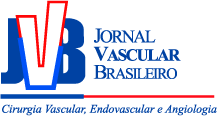Effects of strength training on blood lipoprotein concentrations in postmenopausal women
Efeitos do treinamento de força sobre as concentrações de lipoproteínas sanguíneas em mulheres pós-menopausa
Cleiton Silva Correa; Bruno Costa Teixeira; Aline Bittencourt; Álvaro Reischak-Oliveira
Abstract
Keywords
Resumo
Palavras-chave
References
Van Heek M, Zilversmit DB. Postprandial lipemia and lipoprotein lipase in the rabbit are modified by olive and coconut oil. Arteriosclerosis. 1990;10(3):421-9.
Gill JM, Hardman AE. Postprandial lipemia: effects of exercise and restriction of energy intake compared. Am J Clin Nutr. 2000;71(2):465-71.
Ballor DL, Poehlman ET. Resting metabolic rate and coronary- heart-disease risk factors in aerobically and resistance-trained women. Am J Clin Nutr. 1992;56(6):968-74.
Prabhakaran B, Dowling EA, Branch JD, Swain DP, Leutholtz BC. Effect of 14 weeks of resistance training on lipid profile and body fat percentage in premenopausal women. Bri J Sports Med. 1999;33(3):190-5.
Wooten JS, Phillips MD, Mitchell JB. Resistance exercise and lipoproteins in postmenopausal women. Int J Sports Med. 2011;32(1):7-13.
Costa RR, Lima AC, Tagliari M, Martins Kruel LF. Effects of resistance training on the lipid profile in obese women. J Sports Med Phys Fitness. 2011;51(1):169-77.
Witard OC, Tieland M, Beelen M, Tipton KD, Van Loon LJ, Koopman R. Resistance exercise increases postprandial muscle protein synthesis in humans. Med Sci Sports Exerc. 2009;41(1):144-54.
Kemmler W, Lauber D, Weineck J, Hensen J, Kalender W, Engelke K. Benefits of 2 years of intense exercise on bone density, physical fitness, and blood lipids in early postmenopausal osteopenic women: results of the Erlangen Fitness Osteoporosis Prevention Study (EFOPS). Arch Intern Med. 2004;164(10):1084-91.
Moore DR, Del Bel NC, Nizi KI. Resistance training reduces fasted- and fed-state leucine turnover and increases dietary nitrogen retention in previously untrained young men. J Nutr. 2007;137(4):985-91.
Campbell WW, Haub MD, Wolfe RR. Resistance training preserves fat-free mass without impacting changes in protein metabolism after weight loss in older women. Obesity (Silver Spring). 2009;17(7):1332-9.
Poehlman ET, Dvorak RV, DeNino WF, Brochu M, Ades PA. Effects of resistance training and endurance training on insulin sensitivity in nonobese, young women: a controlled randomized trial. J Clin Endocrinol Metab. 2000;85(7):2463-8.
Smutok MA, Reece C, Kokkinos PF. Aerobic versus strength training for risk factor intervention in middle-aged men at high risk for coronary heart disease. Metab Clin Exp. 1993;42(2):177-84.
Yarasheski KE, Tebas P, Stanerson B. Resistance exercise training reduces hypertriglyceridemia in HIV-infected men treated with antiviral therapy. J Appl Physiol. 2001;90(1):133-8.
Treuth MS, Hunter GR, Weinsier RL, Kell SH. Energy expenditure and substrate utilization in older women after strength training: 24-h calorimeter results. J Appl Physiol. 1995;78(6):2140-6.
Durstine JL, Grandjean PW, Cox CA, Thompson PD. Lipids, lipoproteins, and exercise. J Cardiopulm Rehabil Prevent. 2002;22(6):385-98.
Henry NG. Nonpharmacologic management of low levels of high-density lipoprotein cholesterol. Am J Cardiol. 2000;86(12):41-5.
Kelley GA, Kelley KS. Impact of progressive resistance training on lipids and lipoproteins in adults: a meta-analysis of randomized controlled trials. Prevent Med. 2009;48(1):9-19.
Parks EJ. Recent findings in the study of postprandial lipemia. Cur Atheroscl Reports. 2001;3(6):462-70.
Pearson TA, Blair SN, Daniels SR. AHA Guidelines for primary prevention of cardiovascular disease and stroke: 2002 update. Circulation. 2002;106(3):388-91.
Graham TE. Exercise, postprandial triacylglyceridemia, and cardiovascular disease risk. Can J Appl Physiol. 2004;29(6):781-99.
Correa CS, Teixeira BC, Bittencourt A, Macedo RCO, Reisschak-Oliveira A. Postprandial lipemia and cardiovascular diseases: the beneficial role of strength exercise. J Vasc Bras. 2014;13:123-30.
Elliott KJ, Sale C, Cable NT. Effects of resistance training and detraining on muscle strength and blood lipid profiles in postmenopausal women. Bri J Sports Med. 2002;36(5):340-4.
Zotou E, Magkos F, Koutsari C. Acute resistance exercise attenuates fasting and postprandial triglyceridemia in women by reducing triglyceride concentrations in triglyceride- rich lipoproteins. Eur J Appl Physiol. 2010;110(4):869-74.
Asikainen TM, Kukkonen-Harjula K, Miilunpalo S. Exercise for health for early postmenopausal women: a systematic review of randomised controlled trials. Sports Med. 2004;34(11):753-78.
Fenkci S, Sarsan A, Rota S, Ardic F. Effects of resistance or aerobic exercises on metabolic parameters in obese women who are not on a diet. Advances in Ther. 2006;23(3):404-13.
Hills AP, Shultz SP, Soares MJ. Resistance training for obese, type 2 diabetic adults: a review of the evidence. Obes Rev. 2010;11(10):740-9.
Fahlman MM, Boardley D, Lambert CP, Flynn MG. Effects of endurance training and resistance training on plasma lipoprotein profiles in elderly women. J Gerontol Biol Sci Med Sci. 2002;57(2):B54-60.
Wallace MB, Moffatt RJ, Haymes EM, Green NR. Acute effects of resistance exercise on parameters of lipoprotein metabolism. Med Sci Sports Exerc. 1991;23(2):199-204.
Hill S, Bermingham MA, Knight PK. Lipid metabolism in young men after acute resistance exercise at two different intensities. J Sci Med Sport. 2005;8(4):441-5.



